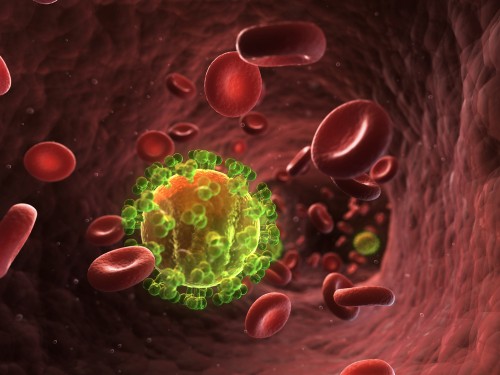The findings prove the importance of interferon, and all of its effects, for the purpose of fighting the AIDS virus

Our bodies contain natural substances whose role is to fight the invasion of viruses - called type 1 interferons - and in the past it was proposed to use them as a potential medicine against the HIV virus, the cause of AIDS. The interferons are used to cure viral diseases such as jaundice, but in the case of AIDS it was found that their ability is extremely limited, so scientists looking for a cure for AIDS turned to alternative directions. Now a joint study by scientists from the Weizmann Institute of Science and the US National Institutes of Health (NIH) shows that suppressing the activity of interferons - or increasing their activity - close to the time of infection with the AIDS virus may have long-term consequences on the course of the disease. The research findings were recently published in the scientific journal Nature.
The interferons, whose name derives from their ability to interfere with viral infection, protect us from disease, but they are also the source of inflammation when we get sick. In a previous study they created Prof. Gideon Schreiber from the Department of Biological Chemistry and members of his group, including the post-doctoral researcher Dr. Doron Levin, and the post-doctoral researcher at the time Dr. Ganit Yordan, an interferon antagonist. The antagonist - which has a chemical structure similar to that of the interferon, and therefore acts as a "competing molecule" - blocked some of the activities of the interferon, while partially maintaining its ability to act against viruses. In particular, the antagonist inhibited the inflammatory activity of the interferon.
According to Prof. Schreiber, the original goal of the research was to better understand the mechanisms activated by different interferon molecules, through which different reactions are activated in the cell. This study, published in the journal Science Signaling, discovered that each type of interferon undergoes an optimization process, which adapts it to its unique activity. "The molecule we created and used in this study," says Prof. Schreiber, "was not a true antagonist, in the biological sense of the word, as it did not block all the activities of the interferon, but only those responsible for regulating the immune system - with only a partial effect on the activity The antiviral".
Later, Prof. Schreiber and his group members teamed up with Dr. Netanya Sandler and Prof. Daniel Doak from the National Institutes of Health to investigate the activity of the antagonist they developed during HIV infection. The study was carried out with the SIV virus - the equivalent of HIV in monkeys. The findings showed that blocking the activities of the interferon through the antagonist played a crucial role in delaying the development of AIDS. Although administration of the antagonist was stopped after a short time - four weeks after infection, continuous monitoring for six months showed that the activity of the immune system did not recover and return to its normal level, and that as a result the progression of the disease accelerated. In contrast, injecting regular interferon into animals improved their resistance to infection with the virus.
Prof. Schreiber: "The findings unequivocally prove the importance of interferon, and all of its effects, for the purpose of fighting the AIDS virus. Damage to the apparently 'harmful' activities of the interferon at the beginning of the infection process - even if short-term - could have devastating, long-term consequences for the continued development of the disease. The findings also show that not only the type of treatment should be taken into account, but also the timing of the administration of interferon for the prevention of the disease and its treatment."
